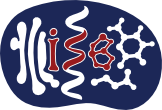Watson PR, Bai P, Wang C, Cragin AD, Hooker JM, Christianson DW. Aromatic Ring Fluorination Patterns Modulate Inhibitory Potency of Fluorophenylhydroxamates Complexed with Histone Deacetylase 6. Biochemistry. 2022 Sep 20;61(18):1945-1954. doi: 10.1021/acs.biochem.2c00332. Epub 2022 Sep 8. PMID: 36073962; PMCID: PMC9489680.
Abstract
Bavarostat (EKZ-001) is a selective inhibitor of histone deacetylase 6 (HDAC6) that contains a meta-fluorophenylhydroxamate Zn2+-binding group. The recently determined crystal structure of its complex with HDAC6 from Danio rerio (zebrafish) revealed that the meta-fluoro substituent binds exclusively in an aromatic crevice defined by F583 and F643 rather than being oriented out toward solvent. To explore the binding of inhibitor C-F groups in this fluorophilic crevice, we now report a series of 10 simple fluorophenylhydroxamates bearing one or more fluorine atoms with different substitution patterns. Inhibitory potencies against human and zebrafish HDAC6 range widely from 121 to >30,000 nM. The best inhibitory potency is measured for meta-difluorophenylhydroxamate (5) with IC50 = 121 nM against human HDAC6; the worst inhibitory potencies are measured for ortho-fluorophenylhydroxamate (1) as well as fluorophenylhydroxamates 4, 7, 9, and 10, although there are some variations in activity trends against human and zebrafish HDAC6. These studies show that aromatic ring fluorination at the meta position(s) does not improve inhibitory activity against human HDAC6 relative to the nonfluorinated parent compound phenylhydroxamate (IC50 = 120 nM), but meta-fluorination does not seriously compromise inhibitory activity either. Crystal structures of selected zebrafish HDAC6-fluorophenylhydroxamate complexes reveal that the fluoroaromatic ring is uniformly accommodated in the F583-F643 aromatic crevice, so ring fluorination does not perturb the inhibitor binding conformation. However, hydroxamate-Zn2+ coordination is bidentate for some inhibitors and monodentate for others. These studies will inform design strategies underlying the design of 18F-labeled HDAC6 inhibitors intended for positron emission tomography.

